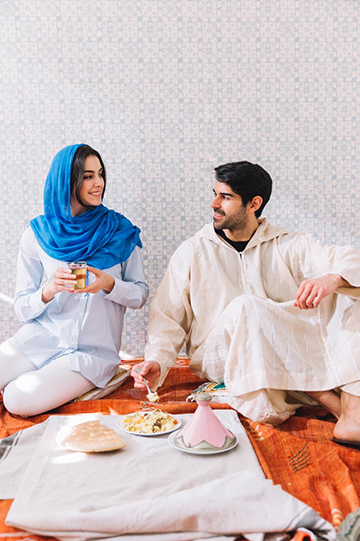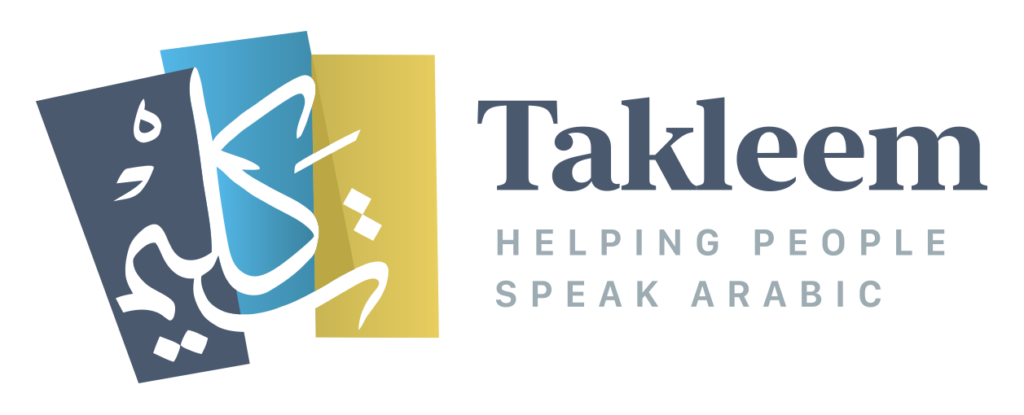BY RANA AL-GHALIB
What’s the difference between a language and a dialect? They are one and the same; they work together like a needle and a thread. It is a perfect balance that helps one understand the culture and its people. The Takleem team is back to impart more Arabic phrases that you can use in your everyday life.
Language is the secret to human communication. It bridges the gap between people and lets them understand one another. It even proves how similar we are when we actually understand each other as a result of shared opinions or values.
In Saudi Arabia, there are many who speak different languages, although the Arabic language is the primary form of spoken communication. Each culture has a dialect of select words used within the culture; particular words that are specific to certain regions. These words embody tradition, respect, and love. Not only are the words committed to the teachings of Islam, more so it embodies the fundamental core of hospitality, courtesy, and compassion.
Here are some words in the Arabic dialect that would definitely come in handy. Some of these words you may have heard and wondered what they meant; now is your chance to understand them. Take some time to learn them and enjoy.
When you meet someone or see them or even call them on the phone, you might hear the words “Hala wa G’hala”. This means “Hello, dear one”.
Hala is a contraction of the word Ahlan, which means hello or welcome. It is said at the beginning of welcoming someone. G’hala, is a contraction of G’haly, which means dear. This is a perfect way to greet someone, try it out the next time you phone someone or meet them.
Other forms with the same meaning would be: Hala bilg’hali, Hala be zain. These also welcome a dear one. The meaning slightly differs as zain means beautiful inside and out.
Now that we have welcomed a dear one, let’s say we miss them by saying: “Ishtagt lak” for the male, and “Ishtagt lek” for the female.
“Min Oyuni” literally translated to from my eyes, which means that you are willing to do anything for the person because you love them and you are doing it with pleasure.
Other words that use figurative meaning would be “ya oyuni, ya galbi, ya hayati, ya rohi, and ya habibi [habibati (feminine)]”. These are not down to their literal translation. All these words are used to call someone using the word “ya”.

Ya oyuni: my eyes, which means this person is so dear to you that you compare them to your eyes, as one can’t bear to live without the sense of sight.
Ya galbi: my heart, which means that the person is compared to the heart, the most essential organ for living. The heart is the pounding music of love, so this is mostly said to a loved one, although some use it to refer to a friend or even a coworker.
These last three words are probably the sweetest compared to the other words because they mean that you cannot live without this person because he/she is your life and soul, and someone you truly love.
ya hayati: my life.
ya rohi: my soul.
ya habibi: my love
One must note that habibi is not said exclusively among lovers. It is a word that is commonly used among friends or even strangers. However, it does not genuinely mean a lover when said to the latter. It is simply a form of friendliness.
“Amer (masculine)” “Amri (feminine)”
These words are derived from the word “Amer” which means command. When said to another it means that you are pleased to fulfill what they are asking of you. Just like saying, “Your wish is my command.”
Here’s a mini convo of how these words would be used:
Sara: Hala wa G’hala bil zain ishtagt laki. (Hello dear beautiful one, I missed you.)
Maha: Hala habibti, mumkin talab?
(Hi love, can I ask a favor?)
Sara: Aamri? (Whatever is your command?)
Maha: Kob qahwa (A cup of coffee.)
Sara: Min oyuni (With pleasure.)
Now that you know some friendly words that you can use with the next person you meet, I will bid you farewell by saying fe aman Allah. That means I leave you in the safety of Allah (God). This is a common way of saying goodbye to someone and wishing them safety as they leave.
Fe aman Allah dear readers.

Website: www.takleem.co
Email: info@takleem.com
Instagram and Twitter: @takleem_ar
Facebook: @takleem.ar




